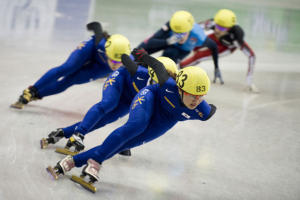
“Most people dislike making mistakes. Mistakes, setbacks, poor performances – all things that athletes (and humans) must face as they seek to reach excellence in their chosen craft.
I’ve been asked many times about how to help athletes better deal with failure. My initial response is “how do you define failure?” Is it losing? Not performing your best? Making too many mistakes? Getting down on yourself mid-performance? Really think about. Explore your relationship with failure by reflecting back on a few times when you’ve experienced some of your most negative emotions after “failing”. The reason this is important is because maybe you’re viewing failure the wrong way. Maybe when you lose, you’re actually granted the greatest opportunity to learn by reflecting on how you can improve. After a win or great performance, many athletes celebrate, feel good (temporarily), and move on. After a loss or poor performance however, many athletes ruminate, feel crappy (temporarily), and reflect on how they can improve.

I would however strongly caution against using the “if I fail I learn” motto as a way out. In other words, did you actually do the work and reflect on your performance in detail and draw out the good and the bad, or are you just using “if I fail it means I learned” as a way to make yourself feel better? Because the ultimate goal isn’t to protect yourself from feeling bad after failure. The ultimate goal is to know what failure means to you and take responsibility for it. Feeling bad after failing is natural. If you don’t feel bad it might mean you don’t care about doing well.

Which leads to the next big question, how do you define success? Hopefully by more than results and outcomes. If you define success by something that’s within your control, like work ethic or bouncing back after a mistake, you can provide yourself with the opportunity to experience a lot more pride in your performance. And as a side note, it’s a lot easier (and safer) to fail when you’re in an environment where there’s trust among team members. More on this another time.
Key points to consider:
- What does failure mean to you/your team?
- Reflect, reflect, reflect.
- After every performance, pick out what you did well, what you didn’t do well, and how you’re going to do it better next time (*if you think this is stupid, just be aware that research shows that the difference between elite and super-elite athletes is that the super-elite reflect on their performance more).
- What does success mean to you/your team?”
About Klaudia Sapieja: Klaudia Sapieja leads all aspects of the mental training program for the Athletics Department at the University of Alberta. Her main role as a practitioner is to work with all varsity level teams, athletes, and coaches. Klaudia is passionate about helping athletes overcome potential mental barriers as they move towards a path of excellence in their sport. In her spare time she enjoys surfing, spending time in nature with her dog, playing soccer, and competitive roller derby.




